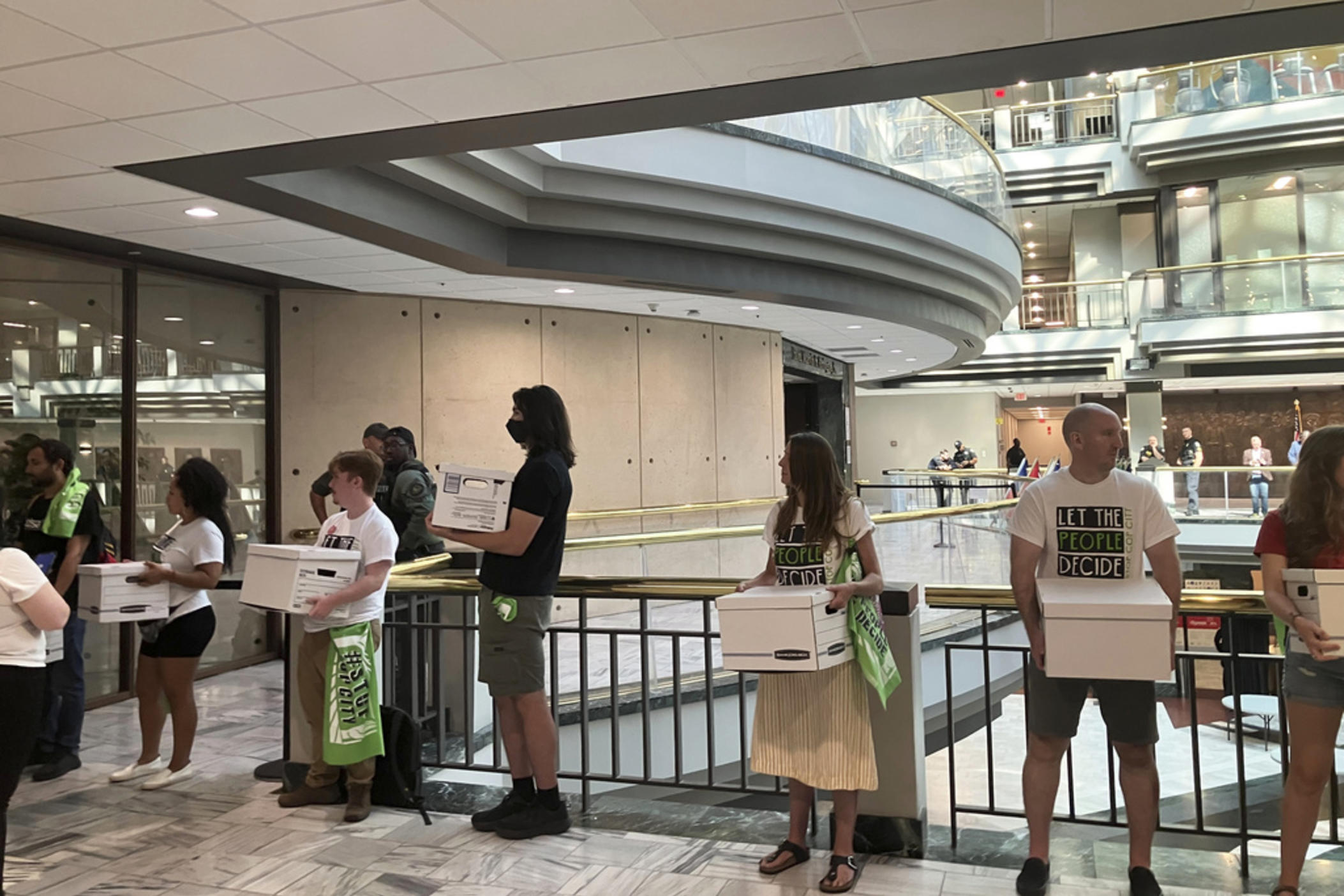Section Branding
Header Content
Judge blames Atlanta officials for confusion over 'Stop Cop City' referendum campaign
Primary Content
A federal judge overseeing the case involving Atlanta activists' referendum effort against a police and firefighter training facility accused city officials on Wednesday of moving the goalposts on the signature-gathering campaign, saying they have "directly contributed" to a widespread sense of confusion over the matter.
U.S. District Judge Mark Cohen ruled that he does not have the authority to force the city of Atlanta to begin processing the tens of thousands of signatures that were handed in Monday by "Stop Cop City" activists, explaining that he cannot intervene while a larger dispute over the effort is awaiting input from the 11th U.S. Circuit Court of Appeals.
But Cohen also said he was "compelled to comment upon the vacillating positions of the City of Atlanta throughout this litigation."
"On June 21, 2023, instead of approving a referendum petition it had no intention to honor regardless of the number of signatures obtained from City residents, the City could have taken the position it later espoused in this lawsuit and disapproved the petition as unauthorized under Georgia law," Cohen wrote.
The judge continued: "The City instead opted to approve a petition for a referendum it believed and later contended was illegal. A proverb dating back over four centuries ago once again applies here: Honesty is the Best Policy."
In a lengthy statement Wednesday, Atlanta officials denied having ever changed their stance on the referendum campaign and said it "has consistently been the City's legal opinion that Georgia law does not allow for a referendum, but the City still issued the petition in a gesture of goodwill and good faith."
Over the past three months, hundreds of activists spread out across the city to gather what they said were more than 116,000 signatures of registered Atlanta voters, far more than necessary to force a vote on the proposed training facility that has outraged environmentalists and anti-police protesters across the country.
But activists who arrived at City Hall on Monday carrying boxes full of signed petitions were shocked when Atlanta officials told them the clerk was legally barred from beginning the process of verifying the forms, saying organizers had missed an Aug. 21 deadline. The deadline had been previously extended until September by Cohen, but the 11th Circuit on Sept. 1 paused the enforcement of that order, throwing the effort into legal limbo.
Organizers responded by asking Cohen to intervene, but the judge denied the emergency motion, ruling that he cannot step in while the matter is in front of the appellate court, though he conceded that the appellate court's recent recent pause "leaves both Plaintiffs, the (Cop City Vote) Coalition, and the City in a quandary."
Atlanta Mayor Andre Dickens and others say the $90 million facility would replace inadequate training facilities, and would help address difficulties in hiring and retaining police officers that worsened after the nationwide 2020 protests against police brutality and racial injustice.
Opponents, however, say they fear it will lead to greater militarization of the police and that its construction will exacerbate environmental damage in a poor, majority-Black area.
Organizers have modeled the referendum campaign after a successful effort in coastal Georgia, where Camden County residents voted overwhelmingly last year to block county officials from building a launchpad for blasting commercial rockets into space.
The Georgia Supreme Court in February unanimously upheld the legality of the Camden County referendum, though it remains an open question whether citizens can veto decisions of city governments. Atlanta officials have called the petition drive "futile" and "invalid," arguing that the City Council's 2021 decision to lease the land to the Atlanta Police Foundation cannot be overturned via a referendum.


